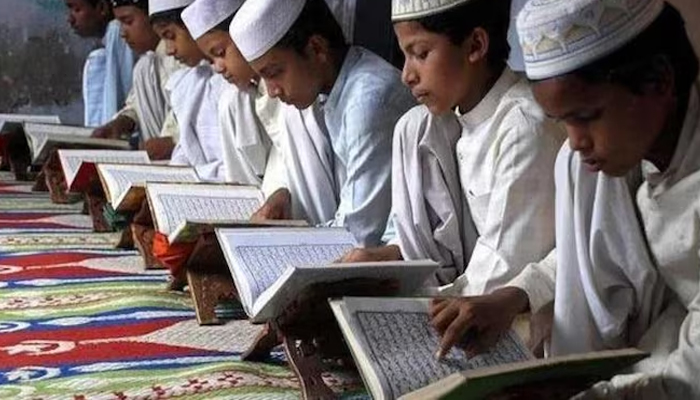By Sahil Sharma: In a landmark move, the National Commission for Protection of Child Rights (NCPCR) has urged the Supreme Court to ensure that madrasas adhere to the educational standards set by the Right of Children to Free and Compulsory Education (RTE) Act, 2009. Despite the RTE Act’s exemption of madrasas from its purview, the NCPCR argues that these institutions must still uphold the constitutional protections afforded by the law. In a written submission filed on Wednesday, the NCPCR highlighted that madrasas often fail to meet the comprehensive education requirements mandated by the RTE Act. As a result, the commission contends that these institutions should not be eligible for state funding.
This stance aligns with the Allahabad High Court’s March 22 decision, which declared the Uttar Pradesh Board of Madarsa Education Act, 2004, unconstitutional. This state law had previously allowed government funding for madrasas in Uttar Pradesh, but following the court ruling, the state was directed to integrate madrasa students into other schools.
The Teachers Association, Madaris Arabiya, Kanpur, has appealed this decision to the Supreme Court. Although the NCPCR was not initially a respondent in the case, it has now filed an intervention application to present its arguments to the court. The NCPCR acknowledges that a 2012 amendment excluded madrasas from the RTE’s scope—a decision subsequently upheld by the Supreme Court. However, the commission insists that this exclusion does not negate the fundamental right of all children to receive an education under Article 15 of the Indian Constitution and the RTE Act.
The commission criticizes the Uttar Pradesh Board of Madarsa Education Act curriculum, arguing that it falls short of the RTE’s requirements. The NCPCR points out that many madrasas do not provide essential educational benefits such as midday meals, uniforms, and trained teachers, which are mandated by the RTE Act. Furthermore, the NCPCR has raised concerns about the lack of a holistic educational environment in madrasas. It notes that many of these institutions offer a limited curriculum and lack social events and extracurricular activities, which are vital for integrating students into the broader education system.
The commission has also flagged potential issues with madrasa textbooks, alleging that some contain content promoting religious supremacy, which may not be suitable for students from diverse backgrounds. As the Supreme Court prepares to deliberate on this significant issue, the outcome will be crucial in shaping the future of funding and regulation for madrasas.
